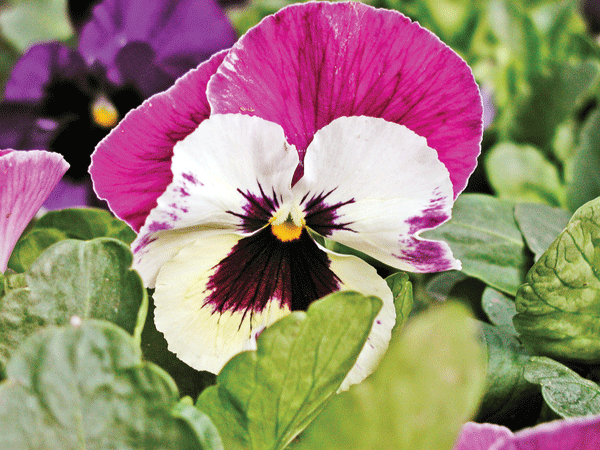
I plan to turn over a new leaf next year. I’m talking about gardening. The rest of my New Year’s resolutions are too numerous to list here! I wish I could tell you that I’ll never put in another plant that might freeze during the winter. I wish I could tell you that I’ll really start that compost pile this year and duke it out with the raccoons. I wish I could tell you I’ll make more garden journal entries and not rely on sketchy memories. But the reality is gardening shouldn’t be so much about regrets. It’s about the delight we get from coaxing plants from the earth. A garden reflects our lives; there’s always room for growth as well as reflection.
We gardeners are eternal optimists. Why else would we plant a tree or a seed or a garden? I have grown wiser as the years go by and although a few things froze this month, most will grow back come spring. Some might require a little more patience than others, but by April or May most will look great. If there are some new transplants, for instance, that suffered because they didn’t have time to establish a strong root system before the deep freeze, I’ll look at it at an opportunity to fill that space with something even better.
I was able to visit some very unique gardens this year and see beneficial insects and beneficial plants at work. When I design a garden I now include even more pollen-producing flowering plants to attract beneficials. This way I keep the good guys around longer to deal with the bad bugs and aid in pollination. Knowing what the good insects look like is important in helping me identify a problem that may be getting out of control.
I’ve kept a garden journal since 1994. In the spirit of full disclosure, some years I do pretty well with it. I add photos and seed packets and lots of info about the weather and how everything did. Other years I’m more hit and miss with my entries. But without the those scribbled note, most of what happened would be forgotten. Reading them over returns me to the quiet pleasures of mornings in the garden, of first bloom and the wonder of a hummingbird hovering at eye level.
This year record what does well in your garden. Were the fruit trees loaded with fruit as you’d hoped? How many times did you fertilize them? Did they flower well? How many bees did you see pollinating them? Should you add more plants to attract them? Insect or disease problems? Room for more? What kinds would extend your harvest season?
Make notes of what other edibles you want to include in the garden. Bare root season starts in January, making it easy to plant grapes, blackberries, strawberries, raspberries, blueberries, artichokes and asparagus.
Make notes about how productive the tomatoes and other veggies did this year. Did you add enough compost to the beds to really feed the soil and the microorganisms? Did you rotate your crops to prevent a build up of insect and fungal problems?
Think about how the perennials in your garden fared last year, both the successes and not so great results. Make a note if there are any higher water usage plants among the drought tolerant ones. Come March, move them to a spot you’ve allocated a bit more water.
I wish I could tell you that I would die happy if I could grow a dry farmed Early Girl tomato next year that tastes like summer. That’s my fondest wish for 2014. Doesn’t sound impossible, does it?
Enjoy your garden. Set realistic goals. After all, who cares if there are a few weeds here and there when you’re sitting under a shade tree with an ice tea next July. Enjoy a beverage of some kind often in your garden. That clean up or transplanting will be there tomorrow.
Happy New Year from The Mountain Gardener.
– Jan Nelson, a landscape designer and California certified nursery professional, will answer questions about gardening in the Santa Cruz Mountains. E-mail her at ja******@*ol.com, or visit www.jannelsonlandscapedesign.com to view past columns and pictures











